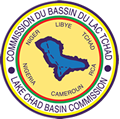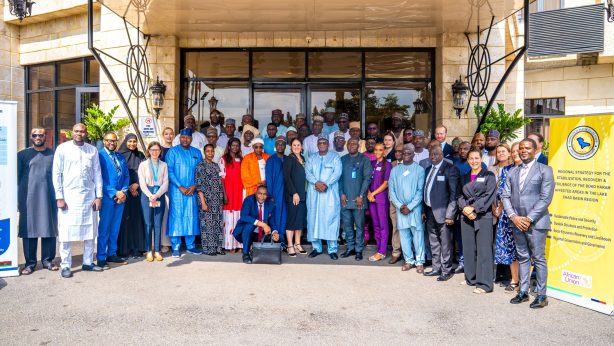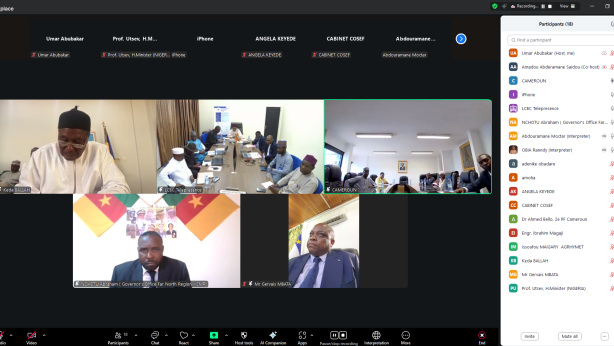Regional workshop on water quality monitoring

Access to quality drinking water is an essential condition for development. As such, improving access to safe drinking water and sanitation is prominently among the Sustainable Development Goals (SDGs). The ambition is to guarantee, by 2030, access to water and sanitation for all and ensure sustainable water resource management. It is easier said than done. Particularly in the Lake Chad Basin, where access to this scarce resource is a major element in improving the resilience of communities to the adverse effects of crises, natural disasters, and the impacts of climate change. Driven by this conviction, the Lake Chad Basin Commission (LCBC), beyond its sovereign missions of sustainable and equitable management of water and other environmental resources of the Lake Chad Basin, strives daily to educate, build infrastructures, and obtain the necessary ownership to achieve this noble objective. With the support of its partners, it is a long-term effort to ensure that appropriate decisions on the sound management of this rare resource become the rule and that water security and quality are assured for all.
It is the purpose of this regional training and experience-sharing workshop on satellite water quality monitoring and the use of the UNESCO Water Quality Portal, organised in the conference room of LCBC in N’Djamena from 12 to 15 December 2022. In attendance were experts from LCBC and other African basin organisations (Lake Tanganyika Authority, International Commission of the Congo-Ubangi-Sangha Basin, Niger Basin Authority) and water professionals, environmental and health specialists, decision-makers, researchers, and other stakeholders from the Member States of these various basin organisations. It aims to build technical and human capacity in water quality monitoring. More prosaically, it will enable participants to acquire theoretical knowledge on the innovative approach to freshwater quality monitoring using satellite earth observation, acquire practical skills for using the UNESCO Water Quality Portal and interpret the data and products made available through the portal. It will also enable participants to manipulate the portal’s products and provide a summary analysis of spatial and temporal dynamics of the various water quality parameters measured to support decision-making on water and water-related ecosystem management, exploring the possibilities of duplicating the portal on other transboundary rivers in Africa, etc.
The ultimate goal is to promote innovative approaches to freshwater monitoring to address the lack of data and information on water quality at local, national, regional, and global levels and for open data sharing. It also aims to facilitate the development of science-based policies and management priorities for the protection of water quality and ecosystems, for the sustainable management of water resources, and the implementation of the Sustainable Development Goals (SDGs), including those related to drinking water, sanitation, ecosystems, and biodiversity.
The UNESCO Water Quality Portal is an innovative scientific tool that enables LCBC and its Member States to monitor the Lake Chad Basin’s water and other natural resources, thus contributing to their sustainable management. It was developed thanks to the scientific and technical expertise of the National Institute for Research and Development (IRD), the National Centre for Space Studies (CNES), the French Biodiversity Institute (OFB), the National Institute for Research on Agriculture, Food, and the Environment (INRAE) the French Institute for Scientific Research (CNRS) and the Magellan Company.
This UNESCO Water Quality Portal in the Lake Chad Basin, which presents satellite earth observation data and in situ water quality monitoring data, was developed as part of LCBC’s BIOPALT (Lake Chad Biosphere and Heritage) inter-sectoral project, funded by the African Development Bank.


